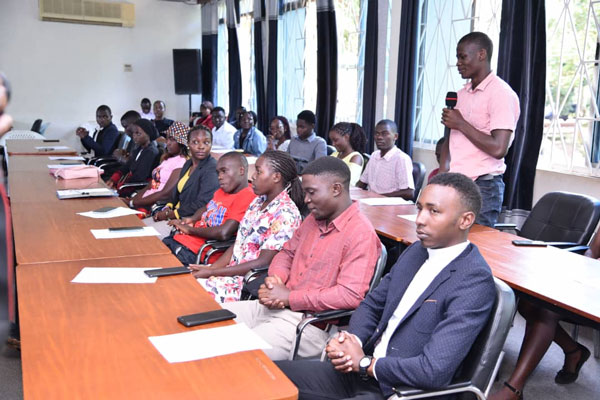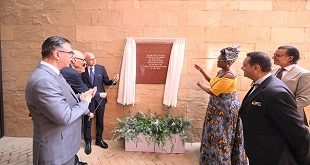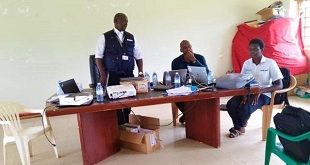
Kampala, Uganda | THE INDEPENDENT | The Ministry of Education and Sports has issued new guidelines for students on various scholarships who are studying abroad. According to the Ministry, failure to submit progress reports will lead to the suspension of stipends.
Dr. Jane Egau, the undersecretary at the ministry, announced these guidelines, stating that students who do not provide academic progress updates and those who do not progress will not be funded for the subsequent year. She was speaking on Thursday while sending off a group of students to Algeria at Makerere University.
Dr. Egau noted that in the past, some students have been lax in their studies, failing to make progress, while others completely disappear after arriving in their designated countries but continue to receive taxpayers’ money. She added that, in the new arrangement, students must submit progress reports, and the ministry will cross-reference this information with their respective universities.
Apart from Algeria, the government pays allowances and stipends to students studying on scholarship in countries like India, Cuba, Hungary, and Egypt among others.
The Algerian government offers 100 scholarships to Ugandan nationals through an annual program administered by the Ministry of Education and Sports. However, the Ugandan government is expected to provide at least $200 per month to support their stay in Algeria.
Despite the temporary suspension of the Algerian scholarship in 2019 due to COVID-19 and other related factors, it resumed this year, with Uganda being allocated 100 slots.
However, only 39 students have been confirmed by their respective universities. Five of these students will not be going for various reasons, including enrolling in programs locally, illness, and not being traced.
Muzamil Mukwatampola, the Commissioner in Charge of Admissions and Student Affairs, mentioned that the remaining slots, up to 61 students, will be confirmed, and successful awardees will be notified.
Mukwatampola emphasized that although the government is supposed to provide a monthly stipend, those going may have to wait for some time to receive this money. This is a change from the previous practice where students could receive funds soon after arriving in a foreign country.
Additionally, the commissioner emphasized the importance of parental support for the awardees during the months when the stipend is not yet available. Parents were urged to assist their children with any needs that may arise during this period, ensuring a smooth transition and continued focus on their studies.
In 2021, a group of 74 students in Algeria went seven months without receiving their stipends, prompting them to appeal to the government for assistance. The delay in stipend disbursement affected their ability to purchase educational materials and pay for essential services around their universities.
The awardees were provided with essential information necessary for their travel. This included guidance on what to expect upon arrival in Algeria, instructions on adapting to the new culture, insights on weather conditions, and related information.
The information session was conducted by officials from the Ministry and a former student who had successfully completed the same program.
The pre-departure briefing aimed to equip the students with the knowledge and tools to navigate their new environment smoothly and ensure a successful start to their academic journey in Algeria.
****
URN
 The Independent Uganda: You get the Truth we Pay the Price
The Independent Uganda: You get the Truth we Pay the Price



This is really ironic because for government, as smart as you’d have thought them to be, doesn’t monitor it’s resources? How do they know they’re not receiving false reports if the reporting duty for some of these things are solely in the hands of the sponsored? Don’t they collaborate with credible external institutions where they send these students so that there is that check and balance? For the part of those sponsored, why operate on them like you just jump a huddle then you’re thrown into the unknown? In other words, this is a clear shout to the public that an whole ministry has no systems / framework in place for what they’re doing in this era of abundant technology … even a number of available free resources on the Internet can be used to help in these areas, but an full ministry has nothing!!